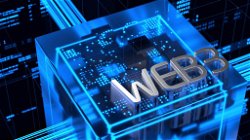Essential Technical Skills for Software Developers
Steffan Addison
. 2 min read
Software developers are the creative and innovative masterminds behind software programs. Their work is largely focused on creating and building software programs for consumers. This includes understanding the needs of consumers, developing the required programs, monitoring performance and updating the programs as and when needed. Some software developers focus on building specific applications and programs, while others build the underlying systems that help power these applications and programs.

Top Transferable Skills for Software Developers
1. Data Structures and Algorithms
This skill is the topmost priority by most of the companies to check the problem solving and coding skill. You can become a good software developer if you know how data can be organized and how it can be used to solve a real life problem. As a developer or a computer science student or a self taught programmer, you should put serious effort to learn Data Structures and Algorithms(e.g. array, linked list, tree). Initially most of the developers do not realize its importance but when you will start your career in software development
2. Database knowledge
Databases are electronic systems that allow individuals to organize and structure information, particularly records for a company. Software developers must know how to search for information, input new lines of data in a table format and update a system with new materials. They also understand how to secure a database and backup data to preserve a company's information during any unforeseen circumstances. To operate a database, it may be helpful to learn a standardized source code called Structured Query Language (SQL)
3. Learning Data Structures and Algorithms for Software Engineers
As a software engineer, having a strong foundation in data structures and algorithms is crucial to writing efficient, scalable, and maintainable code. From sorting and searching algorithms to data structures like linked lists, trees, and graphs, these fundamental concepts form the building blocks of modern software development. In this article, we’ll explore why learning data structures and algorithms is so important for software engineers.
4. Object-Oriented Programming Systems (OOPS)
The knowledge of Object-Oriented Programming is a must for any software engineer. Almost all the programming languages that are widely in use nowadays are based on Object-Oriented principles like Encapsulation, Polymorphism, Abstraction, and Inheritance. This becomes very important that the programming language you choose for learning data structures and algorithms i.e. problem-solving, in general, must be Object-Oriented.
5. Coding and computer programming
Even if it’s rare for Software Engineers to spend their days writing code, it’s a must for a variety of reasons for a good Software Engineer to be familiar with all of the same programming languages that a Web Developer would know, including Python, Java, C/C++ and Ruby, as well as other programming fundamentals such as data structures and algorithms.
6. Software Architecture
Software architecture refers to how a system is organized. A specific mission or mission is considered when designing software architecture, and it must be completed without interfering with the goals of any other tools or devices. It is a fundamental skill that guides the software's behavior and structure, and it must be built and rendered properly for the best outcomes.
Conclusion
With agile as the new normal in many organizations, software engineers are expected to be proficient not only at coding but also have certain soft skills, such as adaptability, communication skills, and teamwork skills. These new requirements reflect the fact that software engineering has become far more collaborative than it was in the past. Of course, technical skills will never stop being important, which is why it’s so important for software engineers to keep developing them throughout their careers.
More Stories from
Quantum Computing: Revolutionizing the Future of Computation
Explore the world of quantum computing, where the laws of quantum mechanics open the doors to unprecedented computational power.
ChatGPT: Revolutionizing Conversational AI with Language Modeling
This article explores ChatGPT, an advanced language model developed by OpenAI, that is transforming conversational AI systems.
International Telecommunication Union (ITU): Bridging the Global Digital Divide
The International Telecommunication Union (ITU) is a specialized agency of the United Nations, dedicated to promoting global connectivity.
Illuminating the Future: A Comprehensive Guide to Light Emitting Diodes (LEDs)
Discover the history, working principles, and diverse applications of LEDs, from lighting and displays to automotive advancements.
The World Wide Web: Connecting Humanity Across Time and Space
From its inception by Sir Tim Berners-Lee to its exponential growth, learn how the Web revolutionized communication, commerce, and society at large.
.png?height=40)









.png?width=40&aspect_ratio=1:1)
